Vocabulary expansion History Worksheets for Ages 4-8
8 filtered results
-
From - To
Discover our engaging Vocabulary Expansion History Worksheets designed specifically for children ages 4-8. These resources support young learners in developing essential vocabulary related to key historical concepts and events. Each worksheet encourages creative thinking and fosters a love for learning, making history approachable and enjoyable. Ideal for both classroom and home use, our worksheets feature vibrant illustrations and interactive activities that captivate young minds while enhancing language skills. By introducing kids to rich terminology in history, we empower them to express their thoughts confidently and meaningfully. Explore our collection today and inspire a lifelong interest in learning about the world’s past!
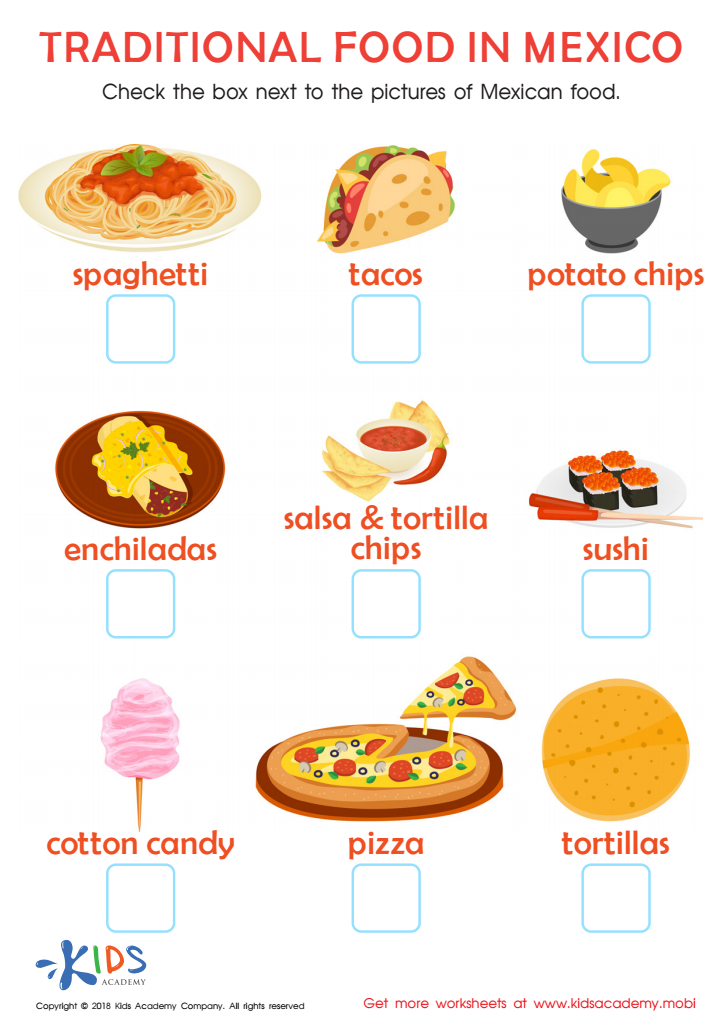

Traditional Food in Mexico Worksheet
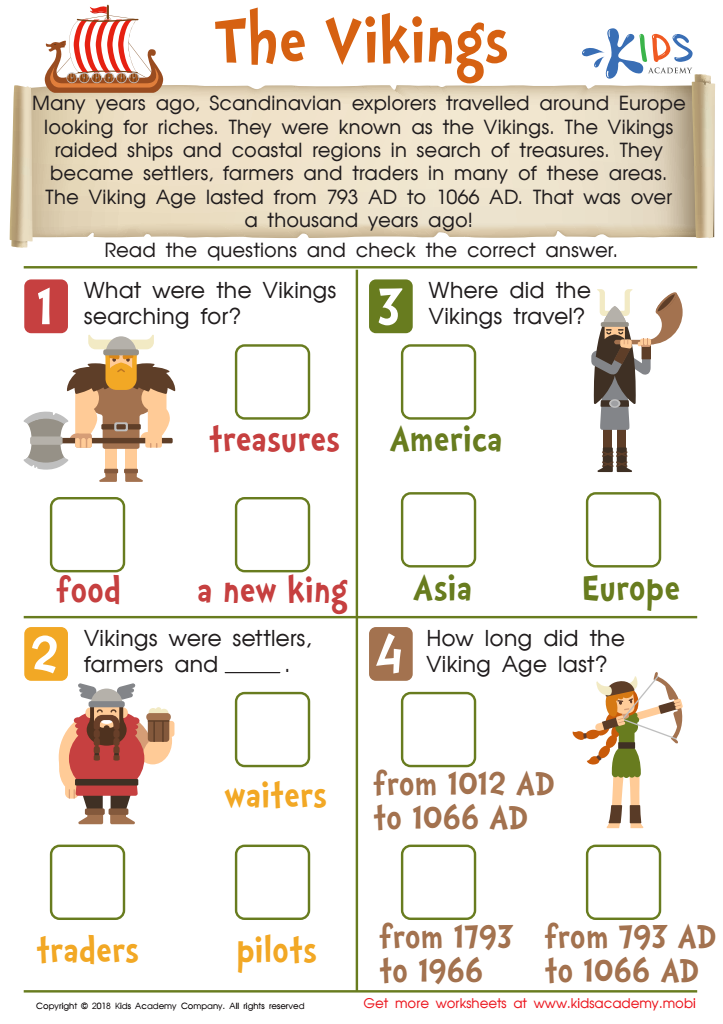

The Vikings Worksheet
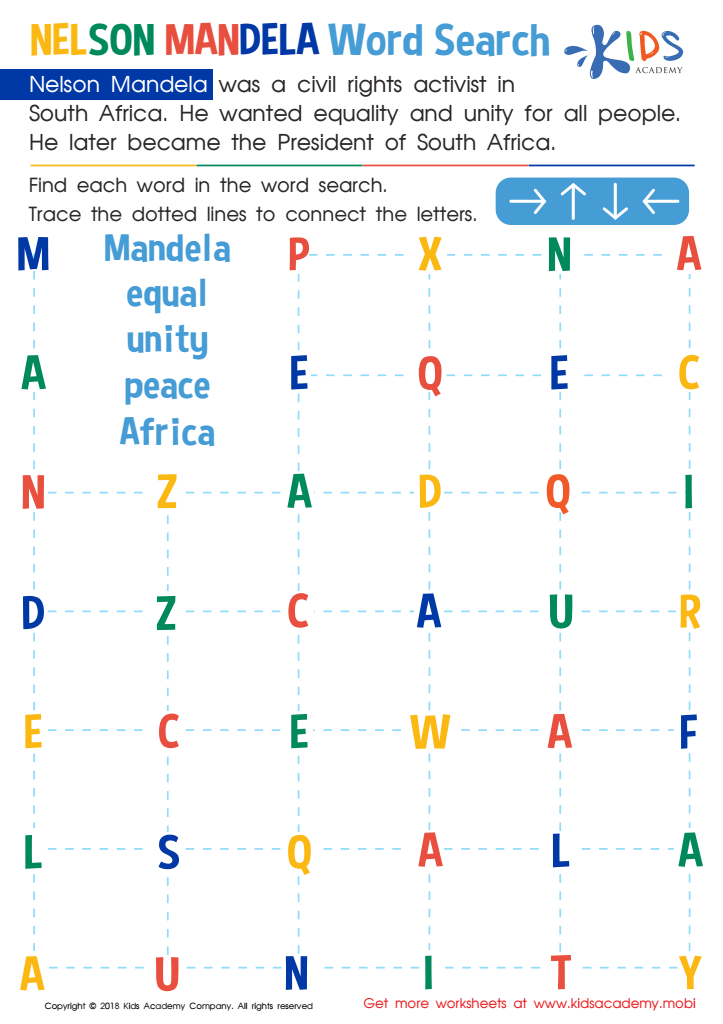

Nelson Mandela Word Search Worksheet
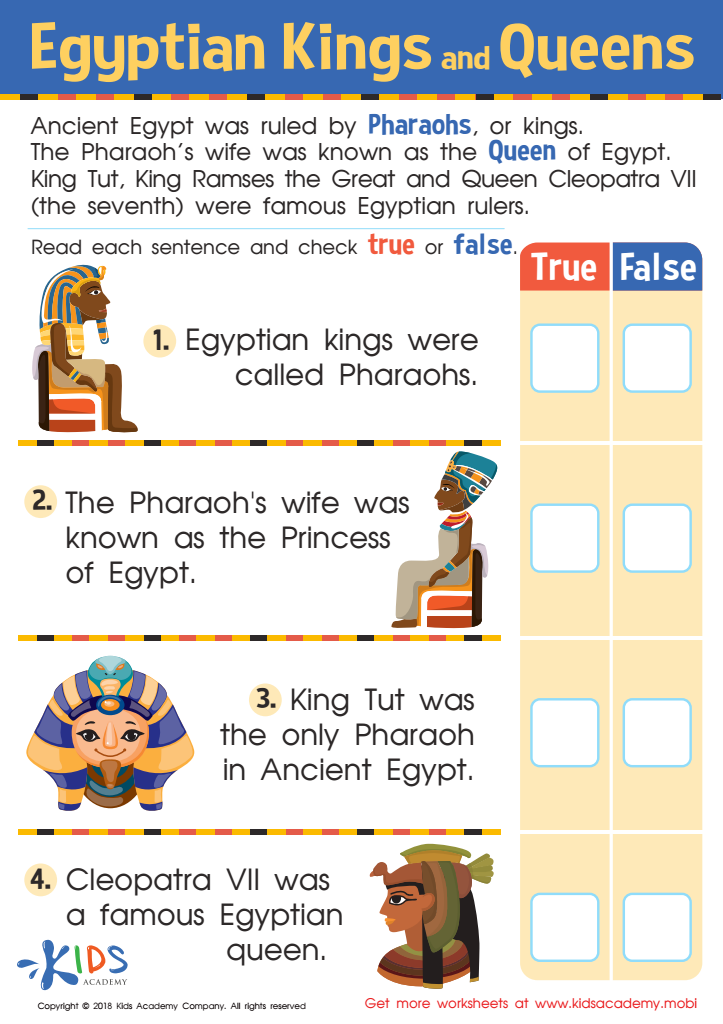

Egyptian Kings and Queens Worksheet
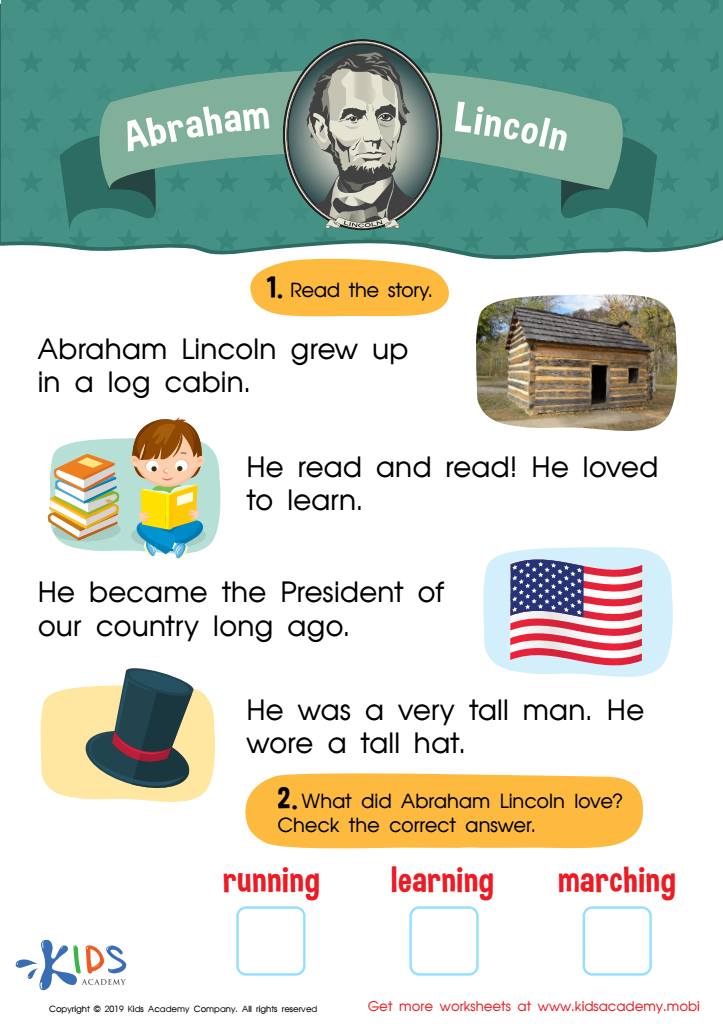

Abraham Lincoln Worksheet
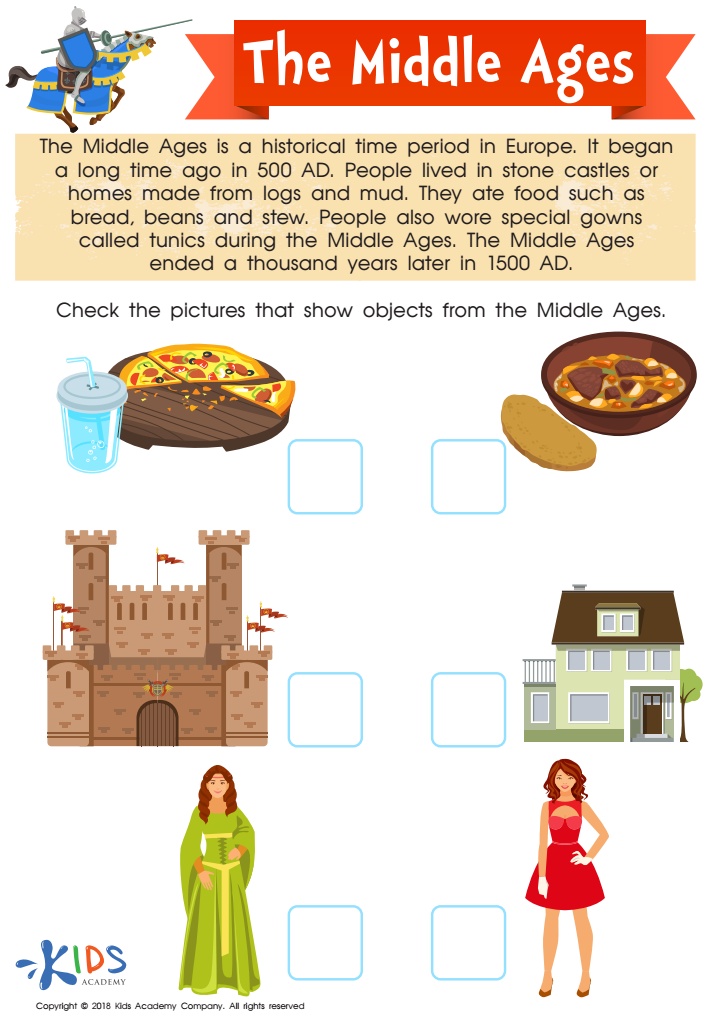

The Middle Ages Worksheet
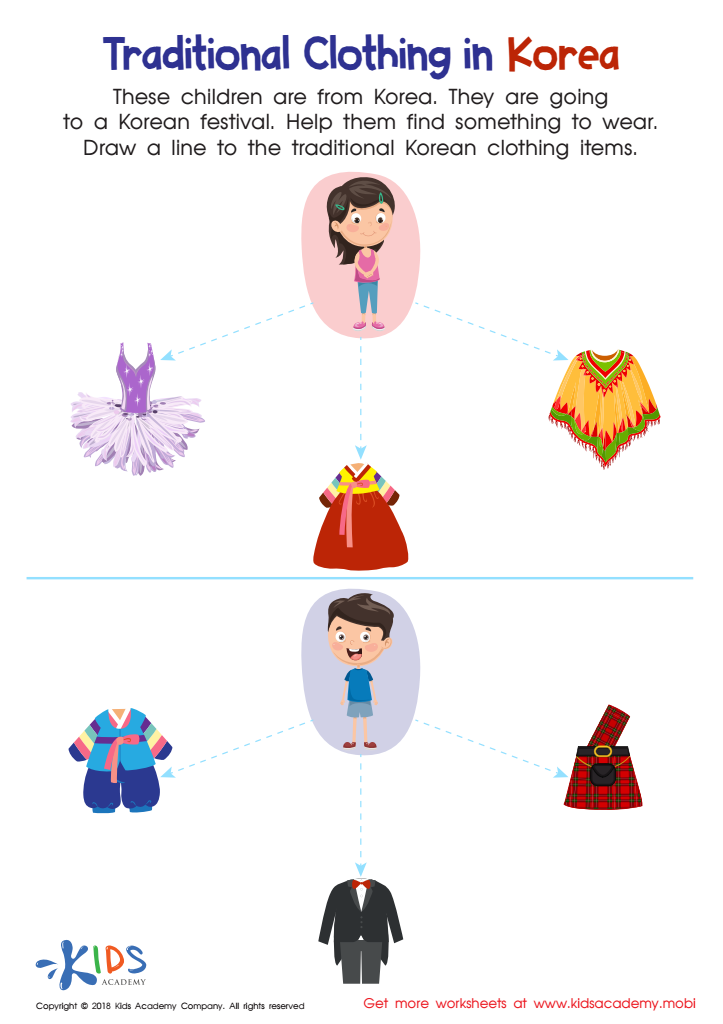

Traditional Clothing in Korea Worksheet
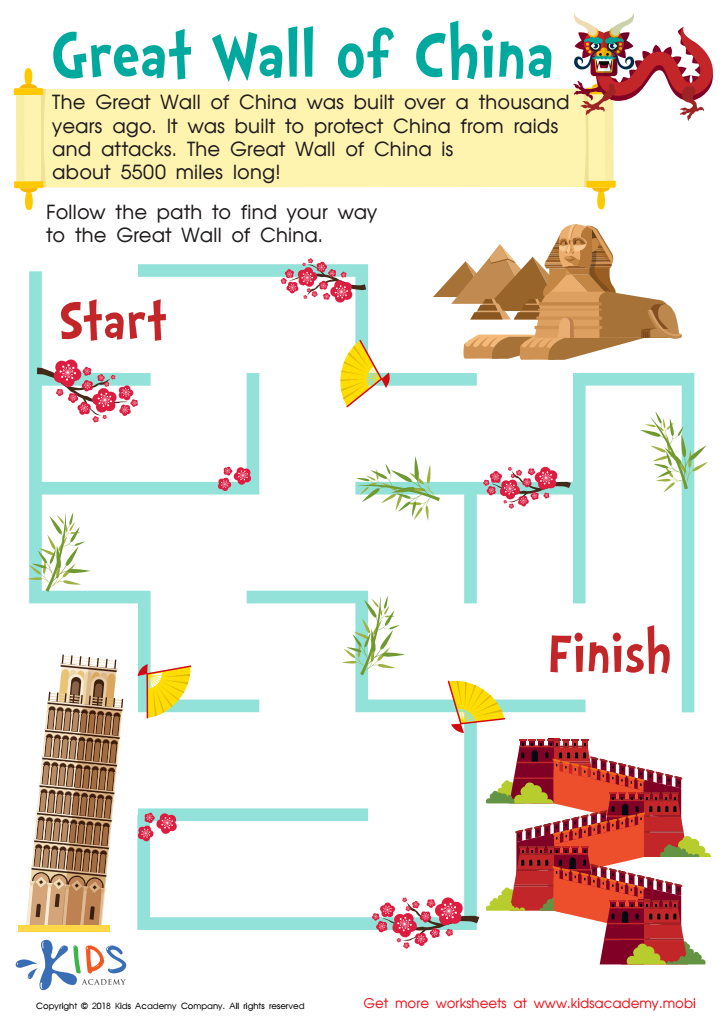

Great Wall of China Worksheet
Vocabulary expansion is critical for children ages 4-8, as it serves as the foundation for literacy, communication, and overall cognitive development. During this developmental stage, children are rapidly absorbing language through everyday interactions and experiences. A rich vocabulary enhances their ability to express thoughts, engage in conversations, and understand the world around them.
Research shows that a strong vocabulary correlates with academic success; the more words a child knows, the better they perform in reading and writing. By focusing on vocabulary from a historical perspective, parents and teachers can introduce children to diverse cultures, stories, and ideas, enriching their knowledge and empathy.
Furthermore, a historical context in vocabulary learning helps children understand the evolution of language and its connection to their heritage and the world timeline. When children learn words linked to significant historical events or figures, they become more curious and engaged, fostering a love for learning.
Ultimately, by prioritizing vocabulary expansion, educators and parents equip children with essential skills that will serve them throughout their lives, enabling them to navigate social situations, pursue education, and appreciate history. It lays not just a linguistic foundation, but one for critical thinking and creativity.

 Assign to My Students
Assign to My Students








.jpg)













